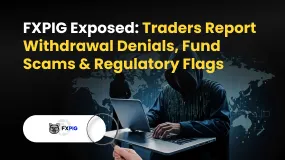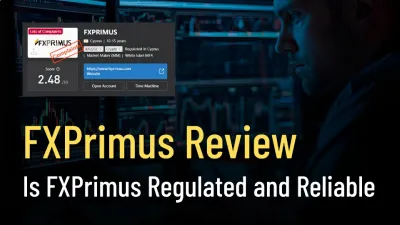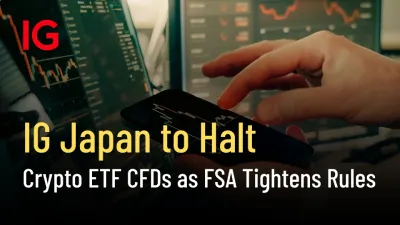简体中文
繁體中文
English
Pусский
日本語
ภาษาไทย
Tiếng Việt
Bahasa Indonesia
Español
हिन्दी
Filippiiniläinen
Français
Deutsch
Português
Türkçe
한국어
العربية
Expotoro Is A Clone of eToro!
Abstract:The discovery of Expotoro posing as eToro sheds light on the alarming prevalence of cloned firms, emphasizing the need for protective tools like WikiFX's mobile app to shield investors from fraudulent entities in the financial markets.

The Financial Conduct Authority (FCA), the regulatory body for financial markets in the UK, has uncovered a fraudulent entity named Expotoro / Tratoro, masquerading as the legitimate Israel-based investment platform eToro.
This clone firm, although not explicitly claiming authorization from the FCA, has been utilizing eToro's details to present itself as a genuine entity, a common tactic among fraudsters known as 'cloned firms.' These entities mimic authorized companies to appear trustworthy, often mixing false and accurate information about the legitimate firm.

The FCA emphasized that the firm in question lacks the necessary authorization to target British customers. They strongly advised investors to deal only with authorized financial firms and to verify their legitimacy through the Financial Services Register. They cautioned that dealing with unauthorized firms means exclusion from protections offered by the Financial Ombudsman Service or Financial Services Compensation Scheme (FSCS) in case of issues.
Consistently at the forefront of combating financial fraud, the FCA has been expanding its list of dubious brokers regularly. One prevalent method used by fraudsters involves creating fake or cloned websites, aiming to deceive individuals into sharing sensitive information or parting with their money.
The proliferation of these deceptive clone websites mimicking legitimate financial entities remains a persistent issue, despite ongoing regulatory efforts.
The FCA advises consumers to exercise caution, particularly when receiving unsolicited communications, as fraudsters often employ these cloned websites in such instances.
Interestingly, the FCA itself fell victim to cloning earlier this year when fraudsters replicated its website, creating a counterfeit page urging firms to register for annual fees.
The replication of established brokers by scammers is a widespread tactic, but tools like WikiFX's free mobile app offer a shield against such deceit. This application provides users with comprehensive broker verification, helping them steer clear of cloned entities and ensuring safe interactions with authorized, legitimate financial firms. Without further ado, download yours for free from Google Play/App Store now!

Disclaimer:
The views in this article only represent the author's personal views, and do not constitute investment advice on this platform. This platform does not guarantee the accuracy, completeness and timeliness of the information in the article, and will not be liable for any loss caused by the use of or reliance on the information in the article.
Read more

FXPIG Exposed: Traders Report Withdrawal Denials, Fund Scams & Regulatory Flags
Do you face massive losses due to astonishing spreads at FXPIG? Have you witnessed multiple trade executions by the Georgia-based forex broker even though you wanted to execute a single order? Has this piled on losses for you? Is the FXPIG withdrawal too slow? Maybe your trading issues resonate with some of your fellow traders. In this FXPIG review article, we have shared these issues so that you can introspect them thoroughly before deciding on the best forex trader.

Does WealthFX Generate Wealth or Losses for Traders? Find Out in This Review
The name WealthFX sounds appealing for all those wishing for a rewarding forex journey. However, behind the aspiring name are multiple complaints against the Comoros-based forex broker. These trading complaints dampen the broker’s reputation in the forex community. In this WealthFX review article, we have shared some of these complaints here. Take a look!

FXPrimus Review: Is FXPrimus Regulated and Reliable for 2025?
FXPrimus is a CySEC-regulated forex broker offering MT4, MT5, and WebTrader with flexible leverage and diverse trading instruments since 2009.

IG Japan to Halt Crypto ETF CFDs as FSA Tightens Rules
IG Japan will end cryptocurrency ETF CFDs after new FSA guidance, forcing traders to close positions by January 31, 2026, under stricter crypto rules.
WikiFX Broker
Latest News
Trillium Financial Broker Exposed: Top Reasons Why Traders are Losing Trust Here
FIBO Group Ltd Review 2025: Find out whether FIBO Group Is Legit or Scam?
Amillex Withdrawal Problems
Is INGOT Brokers Safe or Scam? Critical 2025 Safety Review & Red Flags
150 Years Of Data Destroy Democrat Dogma On Tariffs: Fed Study Finds They Lower, Not Raise, Inflation
CQG Partners with Webull Singapore to Power the Broker’s New Futures Trading Offering
【WikiEXPO Global Expert Interviews】Ashish Kumar Singh: Building a Responsible and Interoperable Web3
Trump: India\s US exports jump despite 50% tariffs as trade tensions ease
IEXS Review 2025: A Complete Expert Analysis
CySEC Flags 21 Unauthorized Broker Websites in 2025 Crackdown
Currency Calculator




